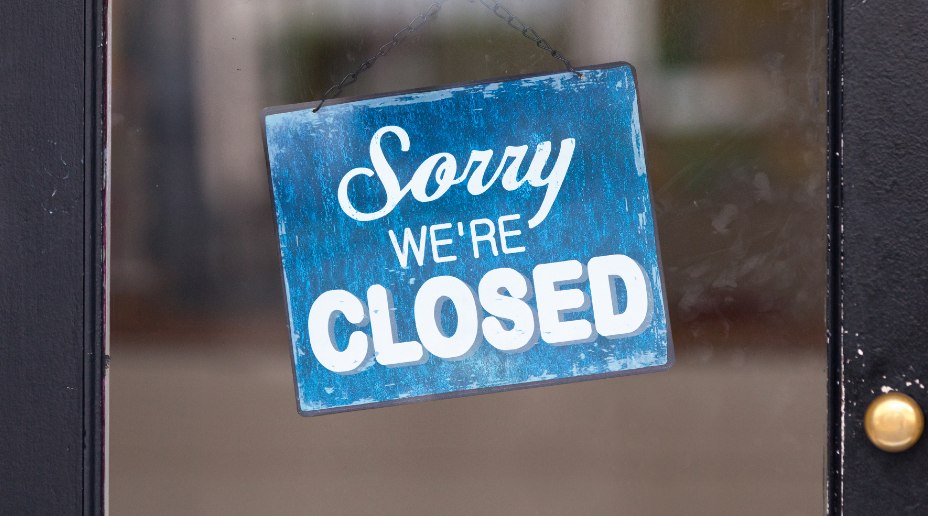
Understanding the risk of underinsurance
When disaster strikes, having the right level of insurance cover is essential. But, as the economic environment shows more and more signs of stress and strain, the insurance industry must take steps to ensure that businesses don’t underinsure and inadvertently add to their pain if they suffer a loss.

Covid-19 uncertainty
The Covid-19 pandemic can be one of the main contributing factors. After a year when many businesses will have seen their profits adversely affected, some will now be struggling to survive.
As well as potentially leading to some businesses reducing their insurance to cut costs, and buying fewer covers, the uncertainty around operations makes it difficult to assess insurance requirements accurately. This is particularly the case for insurances such as business interruption and liability, where limits are based around financial data such as turnover, gross profit and payroll.
“Having a business closed because of lockdown, or with most of its employees on furlough, will drastically affect these figures now, but perhaps not as we go forward,” says Alastair Blundell, head of insurance at the British Insurance Brokers’ Association. “It is key to reassess wage and turnover figures where these need to be declared to insurers, but also how long the indemnity period needs to be, bearing in mind current trading conditions.”
For instance, if, during the pandemic, a company has not performed as well as it has previously, it may have reduced its sums insured in line with current performance. But, with the economy predicted to grow again1 , resulting in an increase in sales, the company needs to ensure its sums insured reflects this. Otherwise there could be a shortfall when the time comes for them to claim.
Underinsurance can also occur where businesses have reinvented themselves during the pandemic. These reinventions took many forms, including restaurants moving into deliveries and retail businesses supplementing their bricks and mortar outlets with online stores.
While resourceful, these shifts will have affected risk and insurance requirements. For instance, where restaurant staff are delivering food, are their vehicles insured for that purpose? And where a shop goes global by being online, do they have sufficient liability cover if something goes wrong with one of its products overseas?

Brexit barriers

Stockpiling has been on the insurance industry’s radar for some time, as concerns about the availability of goods and materials from the EU resulted in some businesses increasing the level of stock they held. Taking this action may safeguard the business if issues arise around supply chains but it is also essential that this additional stock is taken into account when arranging insurance.
Insurance industry issues
Businesses’ perceptions of the insurance industry can also influence the likelihood of underinsurance. In 2020, although there were plenty of examples of insurers and brokers supporting their clients, the industry’s reputation was affected by the disputes on business interruption.
As businesses were forced to close, many reached for their business interruption policy only to find that, on most, pandemics weren’t covered. While this exclusion was clear-cut on most policies, others had more ambiguous wordings, with the Financial Conduct Authority bringing a test case to clarify contractual uncertainty for policyholders and insurers.

Why underinsurance is such an issue for businesses
Although research suggests underinsurance is incredibly common, taking out less cover than is required can have severe consequences for a business. In the event of a loss, it can find itself seriously out of pocket if underinsurance becomes apparent through the claims management process.
Where a business is underinsured, the insurer can apply the average clause. With this, if the insurer finds the business has taken out inadequate insurance, it can reduce the settlement by the same percentage the asset is underinsured.
For example, an insured has an annual turnover of £1 million with £600,000 gross profit. They took out a business interruption policy, with a sum insured in line with the £600,000 gross profit.
However, as the policy was written on a 24-month indemnity period, this meant the sum insured applied to two years, meaning they were only 50% covered. The business suffered a loss and made a claim for £200,000 to cover the four months it had to cease operating. As the policy had an average clause, the claim was reduced by 50%, and the insured only received £100,000.
While underinsurance can leave a business significantly out of pocket after a loss, some can find themselves in even deeper water. Under the Insurance Act 2015, policyholders have a duty of fair presentation of risk, which requires them to disclose every material circumstance they know, or should know. If an insurer believes a policyholder’s underinsurance is the consequence of a deliberate or reckless breach of this duty, it is within its rights to void the policy altogether, with no return of premium. It may even look to prosecute if it believes the sums insured were deliberately understated.
Preventing underinsurance
In times of strong economic growth, finding that a claim is being proportionately reduced as a result of underinsurance can make it difficult for a business to bounce back after a loss. But, with many businesses struggling to get back on their feet after the pandemic, underinsurance could prove to be the final blow for some businesses.
Although underinsurance can affect any business of any size and sector, given the economic factors that make underinsurance more likely, some sectors are more at risk than others. Hobbs says that those that were most severely affected by the pandemic are at a heightened risk. “Businesses in sectors such as hospitality, retail and leisure are already under pressure as a result of Covid-19,” he explains. “It may also be harder for these businesses to determine sums insured due to fluctuations in turnover and gross profit over the last year.”
As having the right level of cover is so important for survival, the insurance industry must work with businesses to help reduce the risk of underinsurance. Raising awareness of underinsurance and its consequences, is key, and it’s a topic that the insurance industry will be highlighting in 2021.
Getting the right cover
- Get a professional valuation
As rebuild costs can be markedly different to market values, it is worth having properties valued by a professional to ensure sums insured are accurate. The sum insured also needs to take into account additional expenses such as architects fees, any public authority or planning costs and, where necessary, VAT.
Calculators are available to check sums insured remain on track in between professional valuations. “Getting the numbers right at outset will help avoid any inadequate sums insured becoming even less suitable year-on-year,” adds BIBA’s Blundell.
- Ensure accurate sums insured
An up-to-date inventory of all a business’s contents can help set the right sum insured. This needs to take into consideration everything in the premises, including customer goods where this is the case. It should also reflect peak stock levels, rather than the average. These may be affected by key trading times, for instance Christmas, or where concerns about supplies as a result of Brexit have resulted in stockpiling. Hobbs recommends erring on the side of caution. “Don’t hedge or lowball it. When given an option to increase sums insured, go high to get ahead of potential underinsurance.”
- Check BI definitions and sums insureds
Accountancy and insurance policy definitions of annual gross profit differ so businesses need to make sure they have set their sum insured in line with the policy wordings. It’s also important to set the sum insured in line with expected costs and profits, which may include growth or recovery from 2020’s level if the business was adversely affected by Covid-19.
- Get the right indemnity period
Many businesses underestimate how long it will take to fully recover their trading level after a loss, with many opting for a 12-month indemnity period rather than a more generous – and more realistic – 24-month one. This can be the case particularly where a business is in an historic or unusual building that may take longer to rebuild or it has specialist equipment that can take time to replace.
In addition, market trends such as extended supply chains and longer rebuild times due to construction sector skills shortages will also lengthen recovery times.
- Assess limits of liability
Consider the risk and quantum of claims that could be brought against the business. These can evolve over time and may also change, for instance where a business has taken on new liabilities under a terms of business contract. Keeping an eye on trends in liability claims will help to keep businesses protected and insurance cover at the right levels.
- Identify cover gaps
Businesses need to check their cover remains in line with their activities. New risks emerge, for instance cyber risk, and some businesses may have ventured into new areas as they adapted during the pandemic. Ensuring there is regular dialogue between businesses and their brokers and insurers, will help to identify any changes in cover requirements.
- Use data more effectively
Insurers also have a role to play in helping businesses avoid underinsurance. By using data to compare a business’s sum insured and cover requirements against those of similar organisations, it can better identify potential instances of underinsurance and take the necessary action to ensure businesses have adequate cover.
To ensure businesses have the right level and type of cover, brokers will need to work closely with their clients. “The importance of having the right commercial insurance and the correct level of cover was brought into sharp focus in 2020,” says Tarling. “In 2021, as businesses start to recover from the pandemic, it will be more important than ever that they carefully assess their needs and discuss these with their insurance broker.”
It will also be essential that this conversation is supported as much as possible by insurers. Blundell explains: “Brokers can guide their clients, explaining trends and how to calculate sums insured but the sector also needs to be clear about what is expected.”
As an example, he points to the definition of gross profit on business interruption policies, saying that insurers could underline how their definition differs from an accountant’s by using examples and case studies.
Hobbs agrees. “A new level of conscientiousness will be required from the insurance industry at this time of heightened uncertainty,” he adds. “With many businesses having already gone through a huge amount of pain in 2020, it will be essential that they have the right insurance arrangements in place to survive whatever comes their way in the next few years.”